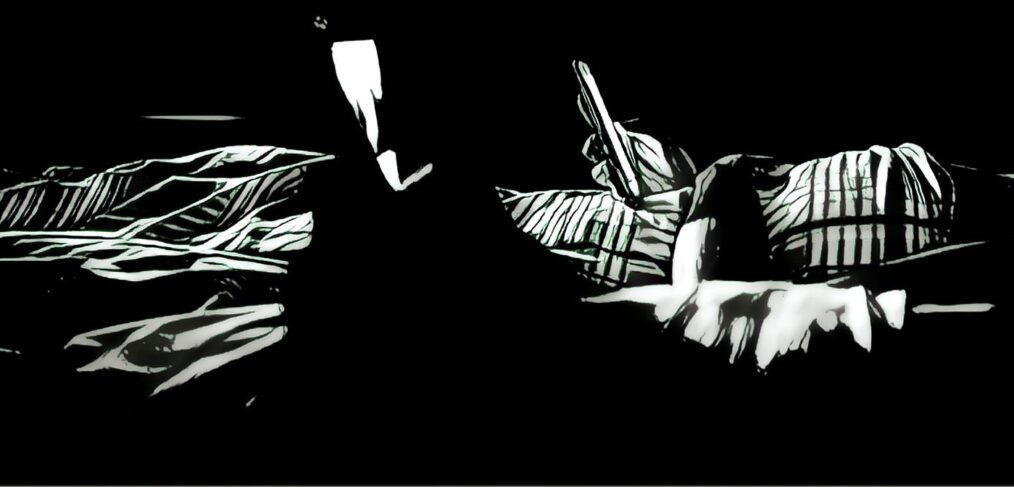
Mindful Existence—Learning How to Live in a World Full of Distractions
In the modern world, we have amazing technology that would have seemed like magic centuries ago, and like science fiction only decades ago. We’re connected with other people around the globe in an instant and think nothing of it. This past week, I was on video meetings with people from Hawai’i, New Caledonia, and Alaska and across the continental US, and it didn’t even warrant a passing mention. We also have literally every movie or TV show ever made available at any time. And if all of that doesn’t satiate our desire for distraction, we have a near infinite stream of opinions, status updates, shares, clips, and fails available from multiple social media sources, all the time. For people born in this era, it’s very easy to never have a time when our brains aren’t occupied by external stimuli, and as a result, to never learn how to live without distraction.
Life before distraction
Given this context, it’s hard to imagine life without these sources of distraction and entertainment, but it was less than one hundred years ago that people did not have electronic entertainment, and five hundred years ago that many people didn’t even have something to read (or the ability to read). General literacy was slow in coming since writing was developed five thousand years ago. At first, the written language was used only by those who needed it, to document economic activity and laws. Writing for entertainment came later, and it was not until the printing press was invented in the 15th century that literacy rates began to rise significantly and common people began to have access to newspapers, periodicals, and later, books.
Starting in the late 1920s, everything began to change. Information and entertainment was broadcast into our homes, and instead of paying attention to the moment, we listened to radio shows. We didn’t have to interpret the words on the page—we were getting more information through sound effects and the tones of the actors’ voices. Then, in the 1950s, TV became widely available, and we took another step toward social isolation and away from mindful existence—and we have been moving steadily away from it ever since.
Before we had options for entertainment, it came in the form of social interaction and storytelling—not something that was available at a whim or compulsively. During these many millennia, humans had to occupy their minds with what their senses were telling them, with the dynamics of their interactions with others, and with their necessary activities and challenges. People would walk around their neighborhoods, chatting with friends and strangers, noticing the changes in the seasons, and generally being aware of their existence.
Creating a mindful existence in the modern world
Given all the options we have for external stimulation and entertainment, it’s possible to never have a mindful moment. We can compulsively reach for our phone in every pause or mindlessly check our email in between tasks. Or we can be intentional about how we exist in each moment. Just because distractions exist doesn’t mean they have to dominate our consciousness. A balance between allowing our minds some downtime and a mentally active existence is key. And although it may seem counterintuitive, we can engage in our distractions mindfully. If we take enjoyment from watching TV or scrolling through social media, we should allow ourselves to do that, but within limits and not compulsively. And even when we are engaged with our sources of entertainment, we can continue to check in with ourselves and maintain an awareness of our existence. An example of our failure to do this is compulsive eating while watching TV. We have a bowl of popcorn (or whatever our vice of choice is), and we keep mechanically shoveling handfuls into our mouths as we watch. Our brains are not engaged, and we have no awareness of our motions, the taste and texture of the food, or how full we feel.
There are a lot of distractions that can take us out of the moment. But that will only happen if we let it. Watch TV intentionally—for a specific amount of time, and not as something you automatically do when there’s nothing else going on. Use social media with awareness—thinking of what you’re getting from it and how often you engage in it. Take pauses when reading to think about what you’ve read, how it made you feel, or what you’ve learned.
There can be room in our lives for entertainment, but it doesn’t have to be mindless. Distractions can be healthy, but they shouldn’t dominate our lives. Even with today’s omnipresent technology, we don’t have to be controlled by it. We can use it in healthy ways that enrich our lives instead of using it mindlessly and compulsively.
Leave your phone in your pocket. It will be there when you need it.



